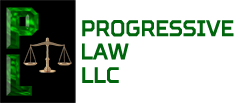By
Stephen R. Smith, Ph.D., J.D.
Welcome back to another article in this series of blogs on Alternate Dispute Resolution (ADR). As you may remember, in the previous blog I advocated that a conscientious attorney should look for alternative opportunities to solve a client’s problem without immediately assuming an adversarial “Junkyard Dog” position. One of those opportunities is ADR. Black’s Law Dictionary describes ADR as “A procedure for settling a dispute by means other than litigation, such as arbitration or mediation.” In mediation or arbitration, the attorney’s role becomes more that of an advisor or negotiator. In these roles, his or her goal should be to prevent any additional harm befalling the client.
Benjamin Franklin once said, “An ounce of prevention is worth a pound of cure.” This is as true today as it was when Franklin coined the popular proverb. When the truism is applied to the field of law, the “ounce” would be analogous to what is called preventative law and the “pound” would represent a costly and adverse litigation. Preventative law is a philosophy by which the “pre-emptive” attorney seeks to anticipate and prevent legal problems that usually lead to adverse litigation.[1] This philosophy is part of an emerging movement in the law known as the “comprehensive law movement.”
Thomas Scheff, a Professor Emeritus at the University of California, Santa Barbara, has called these emerging disciplines “vectors.”[2] Preventative law, along with other vectors, comprises an overall comprehensive movement encouraging law to become more of a “healing” profession. If the law is to become more healing in nature then it makes sense that preventing harm from occurring should be paramount. To accomplish this task, a lawyer should use preventative law to prevent or at least minimize any harm to a client.
At the start, a preventive lawyer must understand the client’s needs and equally important, the client’s understanding of their responsibilities under the law. The preventative lawyer must be proactive. In other words, not only must the lawyer analyze the client’s needs and the applicable law, but also the lawyer must act in a pre-emptive manner by considering the legal implications of a client’s potentially adverse policies, decisions, and dealings. Simply put, is the client doing anything that will cause harm to himself? If the answer is yes, then perhaps it was caused by the lawyer’s failure to educate the clients of their responsibilities under the law.
In her essay “One Aspect of Preventive Law”, presented to the National Center for Preventative Law, Hermione K. Brown writes about the responsibility of the legal community to educate clients.
“But over the years, we get to know our clients; we try to advise them with objectivity after diligent probing of their true wishes, even though the immediate question posed may not disclose it. This may involve dissuading them from practices we deem unethical, or encouraging them to adopt techniques, which will adapt to, or take advantage of, changes in the law, in their profession and in the world at large.”[3]
Education is an essential component of preventive law. The preventative lawyer must ensure that clients are informed and aware of their legal responsibilities under any applicable law. This client education may well prevent lawsuits and harm from occurring.
In his article “Popular Culture and the Adversary System” 40 Loy. L.A. L. Rev. 653 (2007), Michael Asimow states:
“We despise and distrust our lawyers, yet we depend on them to uncover the truth and lead us to justice. When trouble strikes, we want a junkyard dog lawyer by our side.”
Although a zealous advocate is certainly appropriate in some instances, the purpose of the Comprehensive Law Movement is to substitute Solomon-like wisdom in instances where an adversarial “junkyard dog” approach would do more harm than good.
[1] Susan Daicoff, Comprehensive Law Practice: Law as a Healing Profession (Carolina Academic Press 2011, p.49).
[2] Thomas J. Scheff, Community Conferences: Shame and Anger in Therapeutic Jurisprudence, 67 Rev. Jur. U.P.R. 97, 97 (1988)
[3] Hermione K. Brown, One Aspect of Preventive Law, Preventive Law Symposium (2000)
